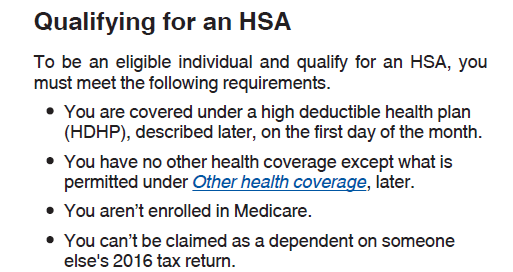This question was sent in by HSA Edge reader Charlie:
I have had an HSA for a number of years. This year, in February 2019, I opened a new HSA at a different institution and transferred the balance from my old account. Now, I’m wondering can I make a contribution to this new HSA for 2018? I didn’t contribute to the old, closed account for 2018.
Contribution limit is by owner, not account
The short answer is, “Yes”, you can contribute to the new HSA given your eligibility last year. It does not matter at which bank (or, “custodian”) you make your HSA contribution, just that you were an eligible individual for the year in question. Just make sure you flag it as a prior year contribution to account for it in 2018 as opposed to 2019.
The reason is the HSA laws are not concerned with where you deposit the funds. Instead, they calculate the amount you are allowed to contribute, your contribution limit, by year and leave it to the account holder to contribute them to the HSA of their choice. In fact you can contribute that amount to multiple HSA’s (e.g. at different banks) if you like. There isn’t a relation or enforcement between the HSA you had open during the eligible period and where you must contribute the funds.
The only timing question related here is for qualified medical expenses. Per Form 969, qualified medical expenses (those payable with HSA funds) must occur after you open the HSA. All of your expenses would have occurred after you opened your original HSA, so this does not apply, but is something to keep in mind.
Note: If you need help preparing your HSA tax form 8889, please consider my service EasyForm8889.com. It asks you simple questions and fills out Form 8889 correctly for you in about 10 minutes.


